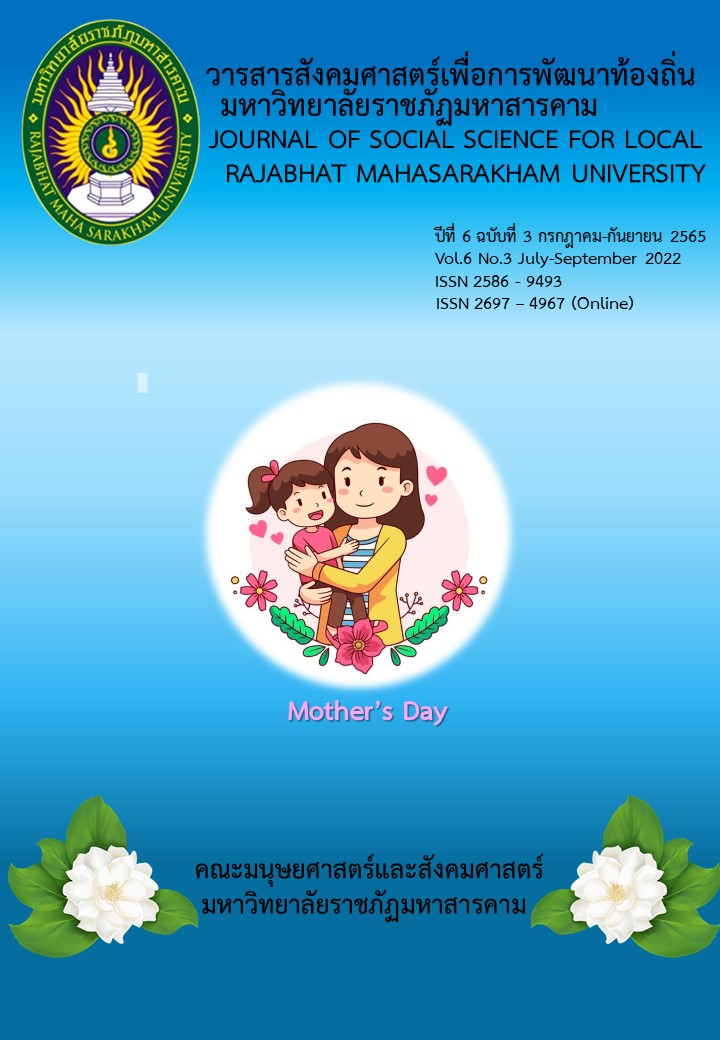ปฏิสัมพันธ์เชิงอำนาจระหว่างรัฐกับประชาชนจากนโยบายทวงคืนผืนป่า: กรณีศึกษา อุทยานแห่งชาติไทรทอง จังหวัดชัยภูมิ
คำสำคัญ:
ทวงคืนผืนป่า; ปฏิสัมพันธ์เชิงอำนาจ; การครองอำนาจนำบทคัดย่อ
งานวิจัยนี้ มีวัตถุประสงค์ 1. เพื่อศึกษาการสร้างความชอบธรรมในการใช้นโยบายทวงคืนผืนป่าของรัฐ และ 2. เพื่อศึกษาปฏิกิริยาตอบโต้ของประชาชนผู้ได้รับผลกระทบจากนโยบายทวงคืนผืนป่า เป็นการวิจัยเชิงคุณภาพ มีเครื่องมือในการวิจัย คือ แบบสัมภาษณ์ปลายเปิด โดยมีกลุ่มเป้าหมาย จำนวน 62 คน ที่มาจากการเลือกแบบเจาะจง ประกอบด้วย (1) ประชาชนผู้ได้รับผลกระทบจากนโยบายทวงคืนผืนป่าในพื้นที่หนึ่งของอำเภอหนองบัวระเหว จังหวัดชัยภูมิ จำนวน 50 คน (2) ตัวแทนจากองค์กรพัฒนาเอกชนที่เกี่ยวข้องกับประชาชนผู้ได้รับผลกระทบจากนโยบายทวงคืนผืนป่าในพื้นที่แห่งเดียวกัน จำนวน 2 คน และ (3) เจ้าหน้าที่รัฐ ผู้ปฏิบัติหน้าที่ตามนโยบายทวงคืนผืนป่าในขณะนั้น จำนวน 10 คน แล้วนำข้อมูลที่รวบรวมได้จากแบบสัมภาษณ์ และเอกสารต่าง ๆ ที่เกี่ยวข้องมาวิเคราะห์ในเชิงเนื้อหา ผลการวิจัยพบว่า 1) รัฐมีวิธีสร้างความชอบธรรมโดยการใช้ศาสตร์และศิลป์ของการใช้อำนาจนำ อันประกอบด้วยการใช้พื้นที่ประชาสังคมกับสังคมการเมือง ซึ่งทั้งสองอย่างนี้ คือ กลไกสำคัญในการเข้ายึดครองพื้นที่ทางจิตใจ และเป็นกำลังในการควบคุม เพื่อให้ประชาชนตกอยู่ภายใต้เงื่อนไขของรัฐ และ 2) ปฏิกิริยาตอบโต้ของประชาชน แบ่งออกเป็น 3 ลักษณะ ได้แก่ การยินยอมพร้อมตาม, การเพิกเฉย, และการต่อต้านตอบโต้



